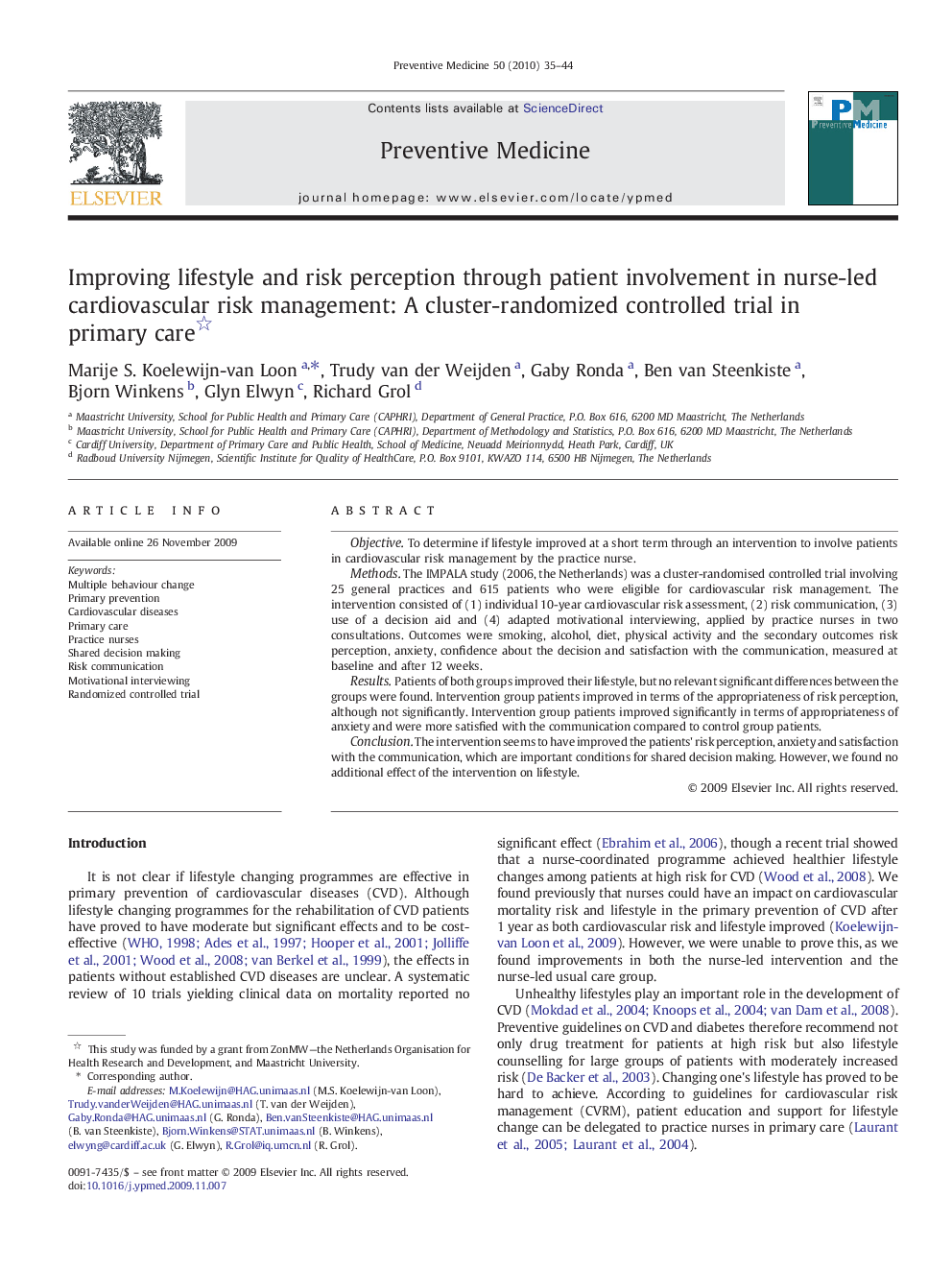| Article ID | Journal | Published Year | Pages | File Type |
|---|---|---|---|---|
| 3101222 | Preventive Medicine | 2010 | 10 Pages |
ObjectiveTo determine if lifestyle improved at a short term through an intervention to involve patients in cardiovascular risk management by the practice nurse.MethodsThe IMPALA study (2006, the Netherlands) was a cluster-randomised controlled trial involving 25 general practices and 615 patients who were eligible for cardiovascular risk management. The intervention consisted of (1) individual 10-year cardiovascular risk assessment, (2) risk communication, (3) use of a decision aid and (4) adapted motivational interviewing, applied by practice nurses in two consultations. Outcomes were smoking, alcohol, diet, physical activity and the secondary outcomes risk perception, anxiety, confidence about the decision and satisfaction with the communication, measured at baseline and after 12 weeks.ResultsPatients of both groups improved their lifestyle, but no relevant significant differences between the groups were found. Intervention group patients improved in terms of the appropriateness of risk perception, although not significantly. Intervention group patients improved significantly in terms of appropriateness of anxiety and were more satisfied with the communication compared to control group patients.ConclusionThe intervention seems to have improved the patients' risk perception, anxiety and satisfaction with the communication, which are important conditions for shared decision making. However, we found no additional effect of the intervention on lifestyle.
